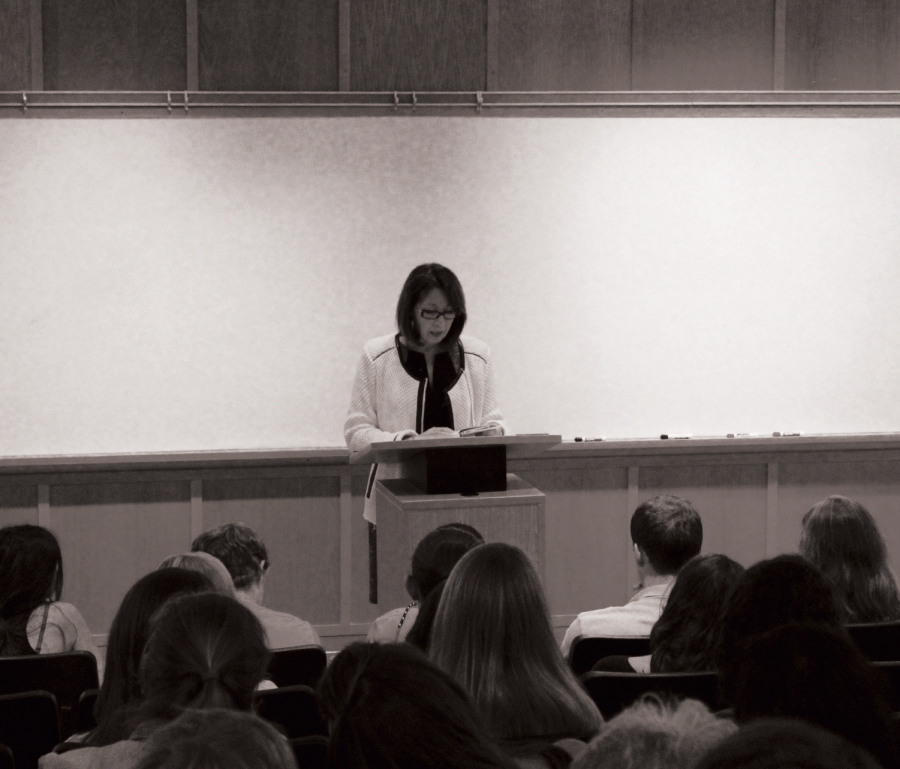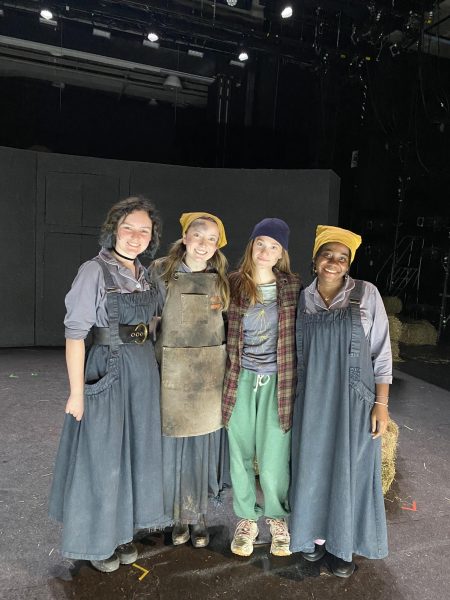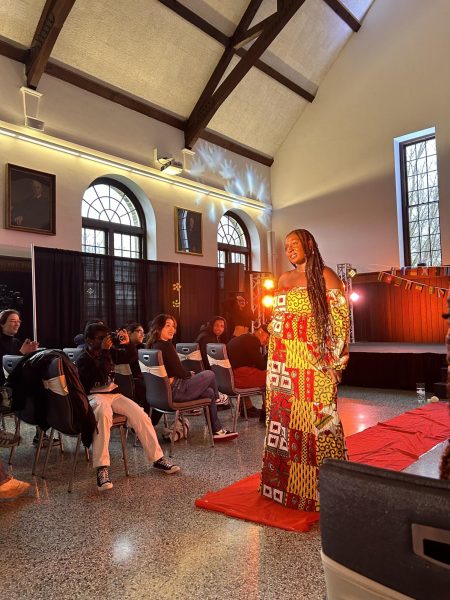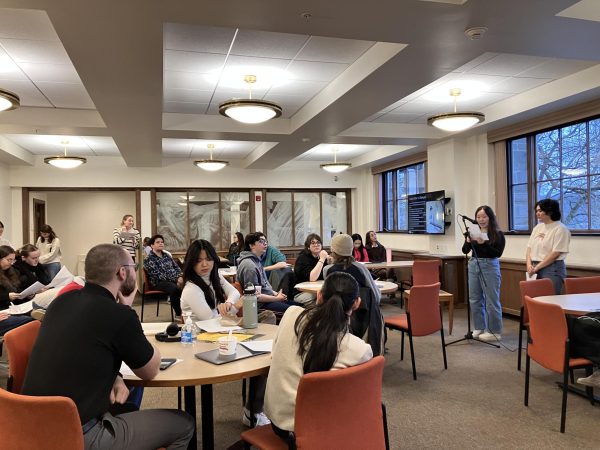Marie Arana Kicks Off Living Writers Series
“Being the world’s melting pot is hard work,” Marie Arana, the first Living Writers author of the year said. The Living Writers class brings authors to campus to engage in discussions with students. She continued on to describe how we are a nation of many parts; a cross pollination, in her words.
Marie Arana was born in Peru to a Peruvian father and an American mother. When she was 10 years old, she moved to Summit, New Jersey. She studied Russian at Northwestern University, Chinese at Yale University and linguistics at Hong Kong University.
A master of languages, Arana was a book editor at Harcourt Brace Jovanovich and the vice president at Simon & Schuster before she joined The Washington Post, where she was the editor of “Book World” and is now a Writer at Large. She has published a memoir about her bicultural childhood entitled American Chica, which was a finalist for the 2001 National Book Award and the Martha PEN/Albrand Award for the Art of the Memoir. She also wrote two novels, one called Cellophane, a finalist for the John Sargent Prize, and Lima Nights. Her most recent book is a biography called Bolívar, which won the 2014 Los Angeles Times Book Prize for Biography.
Arana describes herself as a “mongrel” due to her upbringing that was split between two worlds, two cultures and two languages. Her memoir American Chica is ultimately about love, she claims. It is not only the story of her life, but also the story of the unique nature of her parents’ love.
Her father was an engineer from Peru who thought that children should live in their parents’ world, and not the other way around. Her mother was a talented musician who was American through and through. She firmly believed that children could, and should, dictate the lives of their parents.
While she says that her parents’ love story is the main focus of the memoir, she also writes about herself as a child and how she was the connecting force between her parents.
“It’s about a living, breathing human bridge, which is what I like to call myself,” Arana said.
Arana read several passages from her memoir American Chica: one about her childhood in Peru, and the other about when she first arrives in America. She compares her parents’ marriage to an earthquake that she witnessed in Peru when she was four years old.
“I saw that my parents’ marriage was shot through with fissures,” said Arana as she read from her critically acclaimed memoir. “The earth is loose. A fault runs through. Earthquakes happen. Walls are likely to fall.”
One passage described how at a train station in St. Louis, Arana and her sister puzzled over separate bathrooms, marked “Ladies” and “Colored.” While her mother assured her that she was white, young Arana was not so certain.
“I listened and looked down at my dark-olive knees dangling over the snowy commode,” Arana read. “They were green. They were yellow. They were brown. They were colored. Never in a million years could they be called white.”
Throughout her talk, Arana explained how, although she wrote many different books, she views them all as one book that is simply trying to work out who Latin Americans are in the world. Lima Nights is a love story between two races, and Bolívar is a biography that explains 500 years of history. Yet, Arana views them as part of one larger book explaining Latin America, and ultimately, herself as a Northerner, a Southerner and an American chica.







